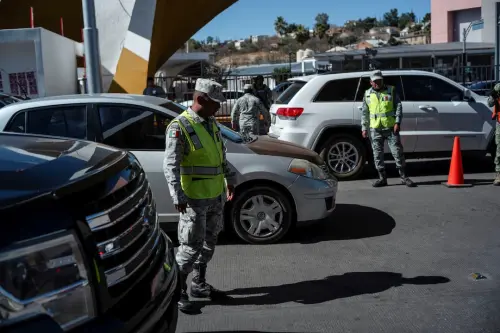Canada and Mexico provided evidence of progress in reducing the flow of fentanyl opioids into the U.S. before the March 4 deadline for potential 25% tariffs on their imports. China accused the U.S. of using "tariff pressure and blackmail" regarding fentanyl, warning of negative consequences.
Mexican Economy Minister Marcelo Ebrard described a meeting with U.S. officials as "cordial" and stressed the potential for future cooperation. President Trump reiterated the tariff deadline due to insufficient progress in addressing fentanyl-related deaths.
Mexico recently conducted a major operation against drug cartel members, including extraditing suspects to the U.S. for trial. There were discussions of Mexico implementing measures beyond recent tariffs to combat low-value shipments from China.
Efforts were made to suspend duty-free exemptions for small packages to prevent the entry of fentanyl precursor chemicals. The focus shifted to Ukrainian President Zelenskiy's visit amid ongoing geopolitical discussions.
The upcoming Chinese tariff deadline coincides with Beijing's crucial parliamentary meetings where economic priorities are expected to be outlined. The Trump administration is maintaining a firm approach towards strategic relationships, especially on drug-related issues.
Despite progress on migration concerns, fentanyl-related deaths remain a key issue in discussions with China, Mexico, and Canada. The CDC reported a significant number of deaths attributed to synthetic opioids like fentanyl in 2023.
